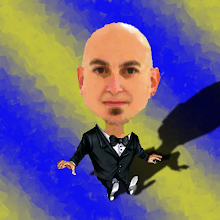The Children of Men All Talk Alike
With the release of Alfonso Cuarón's interpretation of Children of Men, I figured this was as good a time as any to read P.D. James' dystopian novel. And, like so many of its little SF* sub-genre, it is veddy British.
I'd never read any James before, as I'm not big on her usual - the mystery/procedural genre - so I didn't know what to expect...though I should have. The book is presented in two narrative voices that sound almost identical. There are diary entries from Theo Faron, our protagonist, and 3rd-person narrative from a partly omniscient observer who stays close to Faron. For a professor of Victorian History at Oxford, his speech comes off as very hard-boiled. Fitting, and in retrospect quite obvious, from an author of mysteries.
Not that there's anything wrong with that.
There are a few places where James lets her language loose, but they're frighteningly purple. For those who've read any of my poetry, you know I know purple. These scattered attempts at setting mood felt false to me. I accepted the narrative voice (as out of place as it initially seemed) and wanted the book to be consistent in its tone. It's one thing when she had Theo describe a death scene vividly, wholly another to describe an idyllic forest setting.
One last note on language...one of the central characters is described (from Theo's biased point of view) as a bit rough and crude. He's an engineer by trade. Now, I know the Brits are all word-y and shite, but seriously, does this dialog fit in this character's mouth? "I've been exploring. This isn't a proper wood, more a copse."
It sounds like it would fit in P.D. James' mouth perfectly. Not so much this character.
The story, language issues aside, is interesting. Told from such a narrow point of view, the tale of the infertility of the human race - and the first pregnancy in a quarter century - takes on a great intimacy. It's unknown whether this is a fluke occurrence, a harbinger of the return to fecundity, or if the child born is to be a new Adam. England is an island, and Theo's fellows are an island within its borders: a man and his pregnant wife; an Anglican priest; a black midwife; and Theo, that fictionally common combination of musty old academic and man of action.
A decent read, but far more intriguing for the questions it raises and thought experiments it engenders than for its style or content.
* Yes. Science fiction. That's right. When you read 1984 or Brave New World or even Utopia you are reading genre fiction. Painful to accept, I know. There are ways around it, though. For example, if you're the Nobel committee and you want to award the literature prize to an SF writer, you can always create a fake name for its style (see: Gabriel García Márques and Magic Realism)

0 comments:
Post a Comment